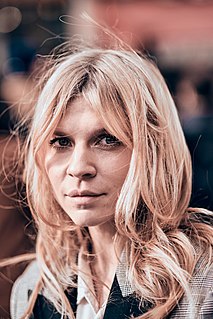A Quote by Jim Woodring
To my way of thinking, the concept drawings that Rembrandt did, the drawings he made that he used to model his artists, to work out the compositions of his paintings: those are cartoons. Look at his sketch for the return of the prodigal son. The expression on the angry younger brother's face. The head is down; the eyebrow is just one curved line over the eyes. It communicates in a very shorthand way. It's beautiful, expressive, and, in a peculiar way, it's more powerful than the kind of stilted, formalized expression in the final painting.
Quote Topics
Angry
Artists
Beautiful
Brother
Cartoons
Concept
Did
Down
Drawings
Expression
Expressive
Eyebrow
Eyes
Face
Final
Head
His
Just
Just One
Kind
Line
Look
Made
Model
More
More Power
My Way
Out
Over
Painting
Paintings
Peculiar
Powerful
Prodigal
Prodigal Son
Rembrandt
Return
Shorthand
Sketch
Son
Than
Thinking
Those
Used
Very
Way
Way Of Thinking
Work
Work Out
Younger
Younger Brother
Related Quotes
[Bernard Leach] was an incredible draftsman, and at the end of breakfast time, for instance, he would push his plate back, and he'd pull an old scrap of paper out of his pocket and a little stub of a pencil, and he'd begin to make small drawings, about an inch and a half, two inches tall, of pots that he wanted to make. And they were beautiful drawings. I really wish I'd stolen some of those scraps of paper, because those drawings were exquisite explorations of his ideas of form and volume in a ceramic piece.
Despite the fact that he no longer dressed like the big dork he did then, despite the fact that he’d swapped the nerd wear for some much cooler clothes, despite the fact that he’d let his hair go all shaggy and loose to the point where it curved down into his face in that cool guy, slightly windswept, effortless way, despite the fact that every time I looked into his brilliant blue eyes I was totally reminded of the Zac Efron poster that used to hang on my old bedroom wall, it still didn’t make it okay for him to laugh at me the way he did.
Then Drew shuffles into the dining hall. I drop my toast, and my mouth drifts open. Calling him “bruised” would be an understatement. His face is swollen and purple. He has a split lip and a cut running through his eyebrow. He keeps his eyes down on the way to his table, not even lifting them to look at me. I glance across the room at Four. He wears the satisfied smile I wish I had on.
Moonlight streamed in, sending loving beams over his face. He closed his eyes and basked in it, and I could tell it was calling to him, even though the moon was not full. She didn't speak to me, but Samuel had once described her song to me in the words of a poet. The expression of bliss on his face while he listened to her music made him beautiful.
I like that cartoons are now not only animated drawings, they are a way of doing something: 'That song sounds very cartoony', or 'He has a cartoon face'. Like the word 'poetic', which usually means something different than a poem. But most of all cartoons are comforting, that's the real reason I need them.
Why did Ted Geisel end up writing and illustrating for young minds? He has specific imagery in the book, and we never would have moved beyond the discussion phase, if we couldn't have found an expression for The Lorax, dimensionally, that was true to the soul of what comes through in his simple line drawings, on the page.
Maybe he sees it on my face, that fraction of a second when I let my guard down, because in that moment his expression softens and his eyes go bright as flame and even though I barely see him move, suddenly he has closed the space between us and he’s wrapping his warm hands over my shoulders—fingers so warm and strong I almost cry out—and saying, “Lena. I like you, okay? That’s it. That’s all. I like you.” His voice is so low and hypnotic it reminds me of a song. I think of predators dropping silently from trees: I think of enormous cats with glowing amber eyes, just like his.
When the artist is truly the servant of the work, the work is better than the artist; Shakespeare knew how to listen to his work, and so he often wrote better than he could write; Bach composed more deeply, more truly than he knew, Rembrandt's brush put more of the human spirit on canvas than Rembrandt could comprehend. When the work takes over, then the artist is enabled to get out of the way, not to interfere. When the work takes over, then the artist listens.
I’m not fascinated by people who smile all the time. What I find interesting is the way people look when they are lost in thought, when their face becomes angry or serious, when they bite their lip, the way they glance, the way they look down when they walk, when they are alone and smoking a cigarette, when they smirk, the way they half smile, the way they try and hold back tears, the way when their face says they want to say something but can’t, the way they look at someone they want or love… I love the way people look when they do these things. It’s… beautiful.
Art is expression; what is expressed is often the vision of a subtle and powerful soul, and also his experience with his vision; and however vivid and skilful he may be in the means of expression, yet it is frequently found that the master-spell in his work is something felt to be indefinable and inexpressible.








































